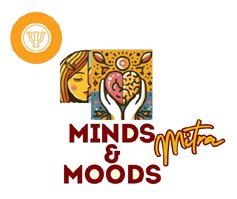Unraveling the Spectrum: Understanding Autism Spectrum Disorder Evaluation 🧩
Autism Spectrum Disorder (ASD) is a neurodevelopmental condition that affects how a person communicates and interacts with others, and also manifests in restricted or repetitive behaviors and interests. An Autism spectrum evaluation is a thorough and multifaceted assessment conducted by a psychologist or a team of specialists to accurately diagnose ASD. This comprehensive evaluation is crucial for providing early intervention, tailoring support for special needs children, and developing effective strategies for individuals across their lifespan.
A Trusted Professional in Nagpur: Rrimi Bodalkar
Rrimi Bodalkar, a distinguished Sr. Psychotherapist / Mental Health Counsellor in Nagpur, specializes in providing comprehensive and compassionate care. With an M.A. in Psychology (Counselling) and a PGDMH (Clinical), she is a highly qualified practitioner with specialized skills in CBT, REBT & DBT. Her expertise, certified by the NSDC in Psychometric Analysis & Learning Style Assessment, allows her to offer a wide range of services, including personality assessment, parenting support, relationship counselling, and trauma therapy. She is committed to helping individuals navigate challenges such as negative thinking, grief and loss, and life transitions, promoting overall well-being and personal growth.
Understanding Autism Spectrum Disorder (ASD)
ASD is a neurodevelopmental disorder characterized by difficulties with social communication and interaction, and restricted, repetitive patterns of behavior, interests, or activities. The “spectrum” in the name highlights the wide range of symptoms and their severity.
Symptoms of ASD
Symptoms of ASD can vary greatly, but they generally fall into the two main categories mentioned above.
Social Communication & Interaction Deficits:
- Avoiding eye contact and lack of facial expressions.
- Difficulty with nonverbal communication like gestures.
- Struggling to build and maintain relationships and friendships.
- Having trouble sharing interests or emotions.
- Lack of social skills and difficulty understanding social cues.
Restricted, Repetitive Behaviors or Interests:
- Repetitive movements like hand-flapping or rocking.
- Rigid adherence to routines and intense distress with minor changes.
- Having highly focused, intense, or fixated interests.
- Being either hyper- or hypo-sensitive to sensory input (e.g., sounds, textures, lights).
- This may also include ADHD or anxiety symptoms.
Causes of ASD
The exact cause of ASD is unknown, but research suggests it’s a combination of genetic and environmental factors. It is important to note that vaccines do not cause autism. Genetic predispositions, certain medical conditions (like Fragile X syndrome), and parental age are all potential risk factors.
The ASD Evaluation Process
An Autism spectrum evaluation is a thorough and personalized procedure that typically involves multiple steps.
- Initial Consultation: A personal counselling session with a parent or caregiver to discuss developmental milestones, behaviors, and family history. This helps the psychologist understand the concerns and the individual’s history.
- Standardized Testing & Observation: This involves using specialized diagnostic tools, such as the Autism Diagnostic Observation Schedule (ADOS) and other neuropsychological testing. The psychologist will observe the individual in various settings to assess their social skills, communication patterns, and repetitive behaviors. IQ testing may also be conducted to get a full cognitive profile.
- Parent & Teacher Reports: Questionnaires and interviews with parents and teachers provide a holistic view of the individual’s behavior across different environments (e.g., home and school). This is crucial for understanding school stress or academic stress.
- Differential Diagnosis: The psychologist will rule out other conditions that may have similar symptoms, such as ADHD, anxiety disorders, or learning disabilities. This comprehensive approach ensures an accurate diagnosis.
Treatment and Intervention
Once a diagnosis is confirmed, a personalized treatment plan is developed. There is no “cure” for ASD, but behavioral therapy and other interventions can significantly improve an individual’s quality of life.
- Cognitive Behavioral Therapy (CBT): This is often used for co-occurring conditions like anxiety, depression, and obsessive behaviors. It helps individuals understand the link between their thoughts, emotions, and behaviors.
- Applied Behavior Analysis (ABA): A structured approach to teaching new skills and reducing problematic behaviors.
- Social Skills Training: Teaches individuals how to navigate social interactions and build relationships.
- Parenting Support: Parenting support counselling helps families learn strategies to support their child.
- Occupational Therapy and Speech Therapy: These are essential for addressing sensory issues and communication challenges.
Frequently Asked Questions (FAQs)
Q: At what age should a child be evaluated for autism?
A: An autism spectrum evaluation can be done at any age. However, early intervention is key. If you notice symptoms around 18-24 months of age, it’s best to seek a professional.
Q: How is an ASD evaluation different from an ADHD evaluation?
A: While both are neurodevelopmental, an ADHD testing evaluation focuses on attention, hyperactivity, and impulsivity. An ASD evaluation focuses on social communication deficits and repetitive behaviors. A skilled psychologist can differentiate between the two or diagnose both, as they can co-occur.
Q: Does therapy help with symptoms of autism?
A: Yes, therapy is highly effective. Personal counselling and specialized therapies like CBT, REBT, and DBT can help manage anxiety, improve social skills, and build confidence. Grief and loss counselling can also be beneficial for families navigating the diagnosis.
Q: Can adults be diagnosed with autism?
A: Yes, many adults are diagnosed with autism later in life. An Autism spectrum evaluation for adults often focuses on their workplace stress, relationship counselling, and burnout counselling. This can lead to a deeper understanding of oneself and help in career counselling.

